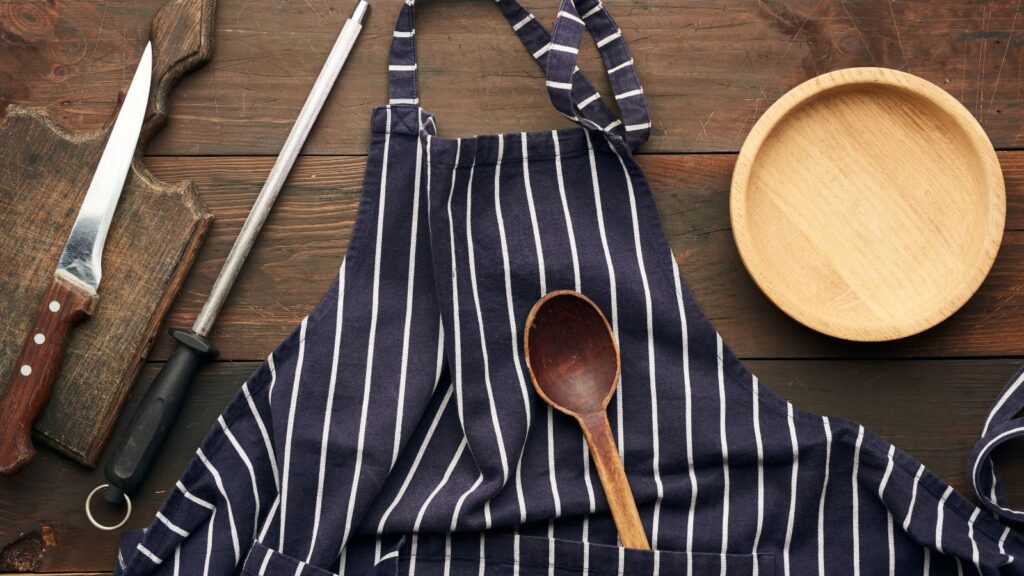In today’s eco-conscious world, the kitchen is evolving into a hub of sustainability. As people become more aware of their environmental impact, the demand for sustainable cooking utensils is on the rise. These eco-friendly tools not only help reduce carbon footprints but also add a touch of style and responsibility to culinary spaces.
Sustainable cooking utensils are crafted from materials like bamboo, recycled metals, and biodegradable plastics, making them a smart choice for the environmentally savvy home chef. They offer durability and functionality without compromising on aesthetics or ethical values. By choosing these utensils, individuals contribute to a healthier planet while enjoying their favorite culinary activities.
The shift towards sustainable kitchenware reflects a broader movement towards mindful living. As consumers seek products that align with their values, sustainable cooking utensils represent a simple yet impactful step in reducing household waste and promoting a greener lifestyle.
Sustainable Cooking Utensils
 Sustainable cooking utensils focus on environmental responsibility without sacrificing functionality. They often use renewable resources like bamboo and wood, minimizing ecological impacts. Bamboo grows rapidly, making it an excellent choice. These materials not only ensure durability but also add a natural aesthetic to kitchens.
Sustainable cooking utensils focus on environmental responsibility without sacrificing functionality. They often use renewable resources like bamboo and wood, minimizing ecological impacts. Bamboo grows rapidly, making it an excellent choice. These materials not only ensure durability but also add a natural aesthetic to kitchens.
Recycled metals, such as stainless steel, contribute to sustainability. They reduce waste and reuse existing materials, maintaining quality and performance. Some utensils feature recycled nylon handles that are both sturdy and heat-resistant.
Choosing sustainable utensils not only benefits the environment but also supports ethical businesses. It reflects a commitment to sustainability in everyday life, aligning with growing trends in mindful consumption and eco-conscious choices.
Tips for Choosing Sustainable Utensils
Selecting sustainable utensils involves several key considerations. First, examine material origin. Opt for utensils made from eco-friendly materials like bamboo, wood, recycled metals, or biodegradable plastics. These materials effectively reduce environmental impact due to their renewability and capacity for recycling.
Check for manufacturing processes. Ethical production methods reduce carbon footprints and use less harmful chemicals. Look for certifications that validate sustainable and ethical manufacturing practices.
Prioritize durability and functionality. Durable utensils last longer, decreasing the need for frequent replacements and reducing waste. Bamboo and stainless steel are excellent options for strength and longevity.
Consider packaging. Sustainable utensils often come with minimal or recyclable packaging. This further ensures a reduction in waste.
Research brands and products. Reputable brands prioritize sustainability and ethical practices. Customer reviews and third-party certifications provide insight into brand credibility.
Assess product lifecycle. Consider how the utensil is disposed of at its life end. Compostable materials or those recyclable ensure a smaller environmental footprint.
By evaluating these aspects, individuals confidently choose sustainable utensils fitting their culinary needs and contributing to a healthier planet.
Popular Materials Used
Bamboo and wood stand out for their renewable nature and durability. Bamboo grows quickly, requiring fewer resources than other materials. Wood, from responsibly-managed forests, offers a classic look and sturdy performance in the kitchen. Recycled metals like stainless steel merge durability with eco-friendliness by repurposing existing resources. Stainless steel resists corrosion, providing long-lasting use. Biodegradable plastics, often derived from corn starch or plant-based sources, decompose faster than conventional plastics, reducing environmental impact. Silicone, composed of silica found in sand, offers a non-toxic alternative for non-stick coating and achieves high heat resistance. These materials ensure sustainable cooking utensils fulfill both functionality and eco-conscious demands.
Recycled metals like stainless steel merge durability with eco-friendliness by repurposing existing resources. Stainless steel resists corrosion, providing long-lasting use. Biodegradable plastics, often derived from corn starch or plant-based sources, decompose faster than conventional plastics, reducing environmental impact. Silicone, composed of silica found in sand, offers a non-toxic alternative for non-stick coating and achieves high heat resistance. These materials ensure sustainable cooking utensils fulfill both functionality and eco-conscious demands.
Brands Pioneering Sustainability in Cookware
As the demand for sustainable cooking utensils grows, several brands are leading the charge in eco-friendly innovation. Companies like Bambu and GreenPan are renowned for their commitment to using renewable resources and ethical production methods. Bambu specializes in handcrafted bamboo utensils, emphasizing natural beauty and minimal environmental impact. GreenPan focuses on non-toxic ceramic coatings and recycled materials, offering cookware that’s both functional and planet-friendly. Other brands, such as Preserve and Full Circle, utilize recycled plastics and plant-based materials to create durable and biodegradable kitchen tools. These pioneers not only provide high-quality products but also inspire consumers to make conscious choices in their culinary pursuits. By supporting these brands, individuals can enjoy stylish and sustainable cooking experiences, contributing

